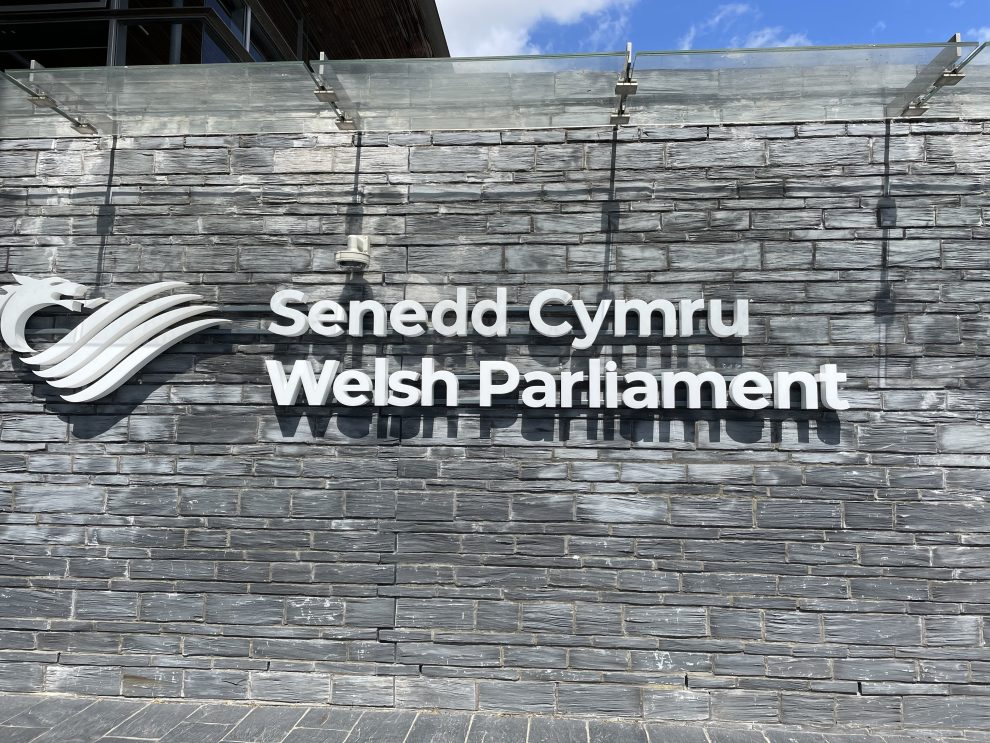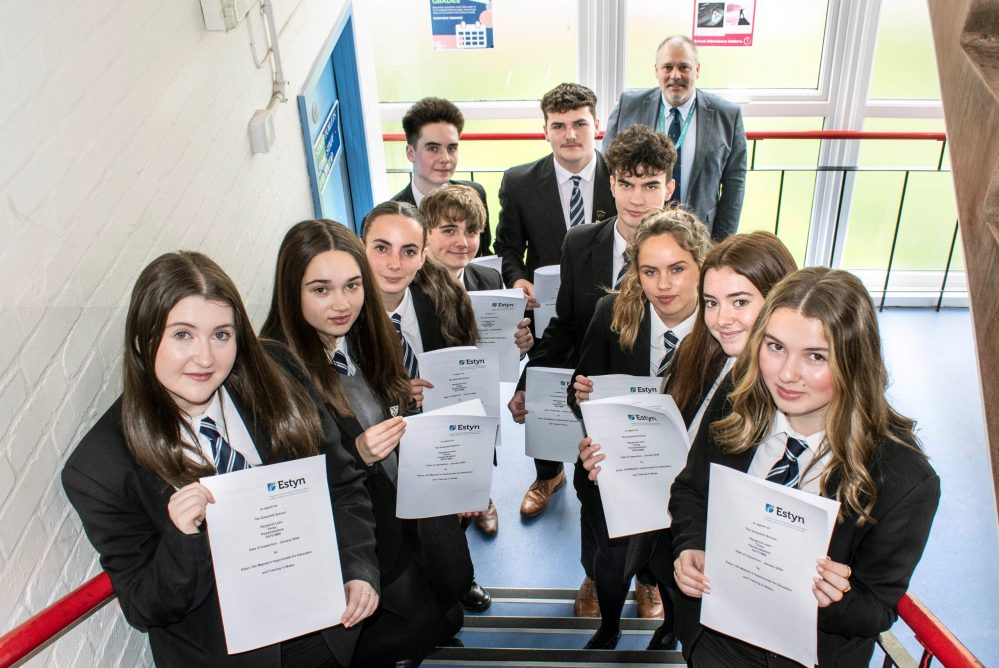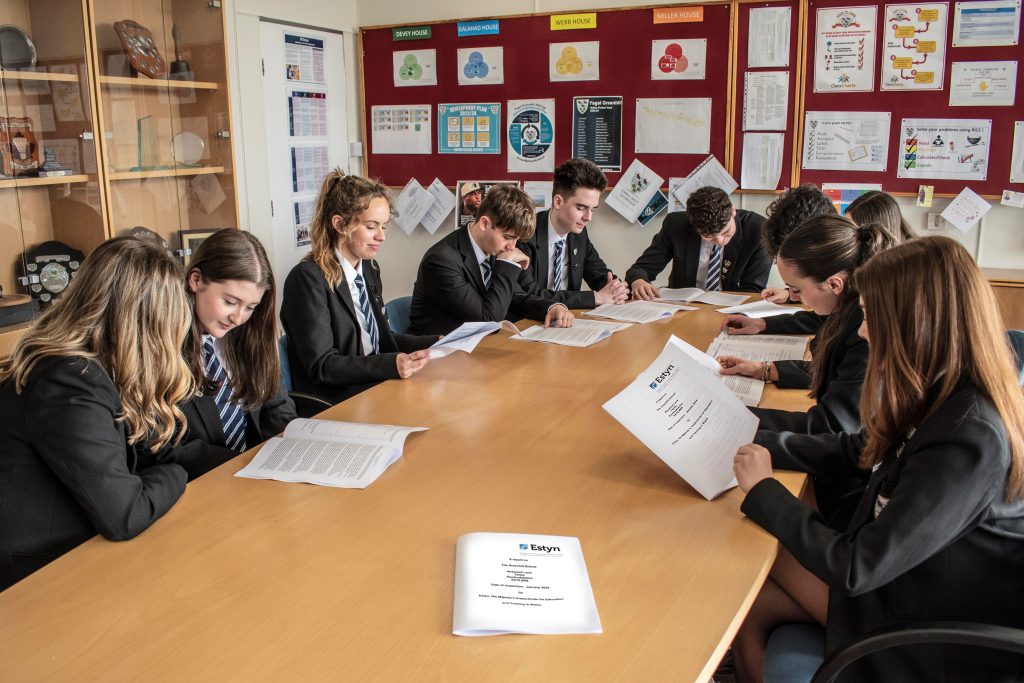Education
UK students are the most tested in the world

Testing: the problem, not the solution
A REPORT by ChildLine, the NSPCC backed children’s helpline, has confirmed what has been reported anecdotally for some time: exam stress is increasing and children are suffering as a result.
UK-wide increases in the level of child testing, dressed up as performance monitoring for schools, is ratcheting up pressure on students to perform; if not for themselves, then for the sake of their schools’ ratings and teachers’ careers.
Peter Wanless, NSPCC chief executive, said: “The pressure to do well is being felt by an increasing number of young people across the country.”
The bare statistics show that ChildLine delivered 3,077 counselling sessions about exam stress to school pupils in 2015-16. Almost a quarter of this counselling took place in the lead-up to exam season.
The UK Government has faced criticism for turning schools into ‘joyless exam factories’, while it has continued to extend its testing regime to include children as young as six. In Wales, where the Welsh Government has formerly reduced the amount of testing, the political controversy over Wales’s standing in the PISA results table has resulted in the reintroduction of some testing.
Whether this is to help students improve their results or make the Welsh Government feel better about its own failings, by shifting the blame for years of under-achievement on to schools and their staff, is unclear.
CHILDLINE FINDINGS NOT ISOLATED
ChildLine is not alone in noting a trend towards increasing anxiety and stress in school children.
A survey of 338 mostly secondary school heads carried out by the Association of School and College Leaders (ASCL) found that more than half (55%) have seen an increase in anxiety and stress among pupils in the last five years.
Former adviser to the UK Government Natasha Devon, who was fired after suggesting that the increase in anxiety and stress in pupils was directly tied to its reliance on testing, testing, testing.
In her TES column following her dismissal, Ms Devon said ‘Our government claims to be prioritising children’s mental health while apparently aspiring to an academic system implemented by countries where the child and adolescent suicide rates are staggering’.
She continued: “Arguments about ‘resilience’ and ‘grit’ are being used to justify piling unlimited amounts pressure on children. Stress is to mental health what avocados are to dieting – only a little is helpful. Furthermore, children (particularly those at primary age) are still in developmental stages where stress can impair cognitive development.”
While Ms Devon was talking specifically of the situation in England, it would be a mistake to believe that Wales was not affected by the same problems.
In 2014, UCAC, the Welsh teachers’ union, warned the then education minister Huw Lewis that testing was destroying the confidence of young learners.
Members of the union NUT Cymru said the reading and maths tests put too much pressure on children too young. One incident was reported in which a child stopped eating because of the stress caused by testing. NUT Cymru claimed the tests had little impact on attainment.
It was, however, the PISA results that caused the Welsh Government to reintroduce tests for seven year-old children.
IS THE TOWER OF PISA TOPPLING?
The Programme for International Student Assessment (PISA) is operated by the Organisation for Economic Cooperation and Development (OECD). The OECD is is an international economic organisation of 34 countries, with 25 observer members, founded in 1961 to stimulate economic progress and world trade.
It is a forum of countries describing themselves as committed to democracy and the market economy, providing a platform to compare policy experiences, seeking answers to common problems, identify good practices and coordinate domestic and international policies of its members.
So, PISA – and its rankings – are a method of identifying and sharing good practice combined with the coordination of policies (of which education is one).
That is all fine, you might think, especially if you are of an internationalist market-economy cast of mind.
However, the bases upon which PISA compiles the league tables are far from standardised across the OECD nations.
Countries are ranked separately in reading, maths and science, according to scores based on their students’ achievements in tests.
Those test scores are, however representative only as they are tweaked to fit a common scale, where the OECD average is always 500.
But all students participating in PISA are NOT asked to respond to exactly the same questions. Some students are not asked any questions on reading and, in 2006, science was the ONLY test subject faced by all students.
Professor Svend Kreiner an expert in bio-statistical modelling says PISA is ‘not reliable at all’. And he should know: the statistical system PISA uses to create its controversial tables was created by his own student mentor.
Professor Kreiner says: “I am not actually able to find two items in PISA’s tests that function in exactly the same way in different countries. There is not one single item that is the same across all 56 countries. Therefore, you cannot use this model.”
TES reported in 2014 that if tests were administered slightly differently, Denmark – held out as a beacon of good practice – would fall down the table of 56 countries to number 37 from its perch at number 5.
So, far from being some sort of educational penis-measuring exercise embarked upon every three years, the PISA tests are a statistical tool of dubious value applying non-standard criteria to students and educational systems that vary in terms of their development , maturity, and cultural backgrounds.
In addition, being a tool of an organisation favouring one set of economic solutions to the world’s economic problems, there is the distinct danger that children are being viewed in terms of their future utility to the native economies than valued in and of themselves.
TESTING THE FUTURE
Kevin Courtney, deputy general secretary of the NUT teaching union says: “Teachers see very clearly the effect of stress on students and are reporting exam stress among school children from primary school upwards.
“Many relate it to the joyless examfactory approach this government has towards education, and the high-stakes nature of testing.
“We have the most tested children in Europe and also some of the unhappiest in the world.”
A retiring head teacher, Kit Messenger, wrote in her letter of resignation: “Judgments made of schools are now so restricted to a small set of measures that the pressure to focus only on reading, writing and mathematics has become untenable and I have increasingly felt that we are ‘factory farming’ our children and failing to prepare them adequately for a successful future in this changing world.”
If students are becoming more stressed, and there is every sign that are, there is a distinct danger that they will become disillusioned not only with the education system but the process of learning itself. With a focus on hitting hard targets under examination, students – even the keenest of learners – can develop a skewed and purely utilitarian view of education and what education is for.
There is a lot of grumbling from employers’ organisations about students not being provided to industry able to write, to spell, and to do simple arithmetical problems. Interestingly, there always has been.
Every year for as long as the writer can remember, and certainly stretching back to his own school days, a talking head will appear on the TV news claiming that schools are not equipping school leavers for jobs and ‘the needs of business’.
It’s enough to make the historically minded observer wonder whether there was EVER a period when businesses were content with the product of state education.
Thumbing through news articles and government reports stretching back over sixty years while researching this article, the answer to that question is ‘apparently not’.
But what has changed, in order to try to ‘meet the needs of business’ is an increasing reliance on tests and testing of children en masse, while losing sight of the value of the individual’s journey through the education system.
The stripping away of music, art, history, and a host of other subjects, means that students are losing a sense that learning is rather more than simply testing them in order to allow Education Ministers to smile smugly at PISA tables.
It is at least arguable that testing is not curing the problem of preparing pupils for the needs of business and commerce, but exacerbating and – to an extent – creating a cadre of students who will simply drop out of learning due to stress, pressure and a lack of opportunity to acquire knowledge for its own sake.
After all, with the pleasure stripped out of learning, what motivation is there for a child of eleven to acquire skills that will help a stranger aged eighteen get a job?
Such outcomes would not be teachers’ faults; that would be the fault of the system.
Education
Conservative calls for academies and free schools rejected by Senedd

THE SENEDD has rejected calls to introduce free schools and academies after a report found major challenges in Wales’ education system.
Tom Giffard led a Conservative debate on educational attainment, warning that Wales is consistently at the bottom of UK-wide league tables.
The party’s new shadow education secretary pointed to an Institute for Fiscal Studies (IFS) report on education in Wales which found low outcomes and high levels of inequality.
Mr Giffard told the Senedd the IFS report highlights the pitfalls of the Welsh Government putting all its eggs in the basket of a skills-based approach.
Criticising a failure to measure skills inequalities and pupil progress, he stressed that Wales’ lower performance is due to policy and approach rather than funding or the pandemic.
He said: “It seems the Welsh Government relies on Pisa results to tell the story but then, when those same results are all too disappointing, they are dismissed in equal measure.”
Mr Giffard, who previously worked in a primary school, said declines in Pisa results can be observed in almost every country that has adopted a skills-based approach.
Raising concerns about disappointing Pisa results, the South Wales West MS pointed out that Wales saw the lowest scores in the UK for every subject.
Heledd Fychan, Plaid Cymru’s shadow education secretary, warned that Wales’ schools are understaffed and facing difficult decisions due to budgets being at breaking point.
She criticised implementation of the Welsh Government’s additional learning needs (ALN) reforms, saying schools cannot realise the aims without the budget to bring them to life.
Ms Fychan said Plaid Cymru agreed with much of the Tory motion but her party would not support calls for free schools and academies.
Sam Rowlands described the IFS report as damning, warning that the Welsh Government’s education reforms have been disastrous and have widened inequality.
The Tory MS claimed the reforms are systematically holding back disadvantaged children, saying: “The most remarkable fact is that the performance of disadvantaged children in England is either above or similar to the average for all children in Wales.”
Mr Rowlands added: “The poorest in England’s schools are doing the same or better than the Welsh average, thanks to ambition, the academies and free schools.”
Samuel Kurtz, a fellow Tory, said free schools and academies have driven up standards in England as he argued a Wales roll-out provides an opportunity to improve outcomes.
James Evans, the Conservative MS for Brecon and Radnorshire, highlighted the party’s pledge to get 5,000 more teachers into Wales’ classrooms.
Buffy Williams, the newly elected chair of the Senedd’s education committee, said Wales is undergoing a profound transformation propelled by ALN and curriculum reforms.
The Labour MS for Rhondda stressed the importance of listening to teachers and allowing ample time for the reforms to take root in classrooms across Wales.
Altaf Hussain recounted a conversation he had this week with a headteacher at one of the largest schools in his South Wales West region.
The Conservative said: “The major improvements they have been delivering to attainment and addressing behavioural issues are all at risk because of cuts to funding.
“Vital work undertaken to improve the lives of young people with additional needs could be halted because they cannot afford to continue employing the support workers.”
Lynne Neagle recognised the scale and seriousness of work still ahead to improve Wales’ education system, stressing: “I am not, in any way, complacent about that task.”
Wales’ newly appointed education secretary, who takes over from Jeremy Miles, said sustained improvement in attainment will be among her top priorities.
She told the chamber: “My early focus has been to listen closely to schools and where it is clear that schools seek more scaffolding.”
Ms Neagle said the Welsh Government will work with trade unions and employers to reduce workload and eliminate unnecessary red tape.
The Conservative motion was voted down, 14-35, following the debate on April 24. The motion as amended by the Welsh Government was agreed, 26-23.
Education
Ysgol Greenhill welcomes positive Estyn report

YSGOL Greenhill and Pembrokeshire County Council have welcomed a strong and very positive Estyn report for the school.
Estyn, the education and training inspectorate for Wales, has released its findings following a full inspection of the school, based in Tenby, carried out in January 2024.
The report noted:
- Under the supportive leadership of the Headteacher, staff at Ysgol Greenhill work together effectively to secure a happy and respectful learning community. Together they have developed a culture of openness and collaboration and share an ambitious goal to become a self-improving school.
- Leaders have secured improvements in many important areas of the school’s work, such as pupils’ learning and attitudes and the provision of care and support for pupils’ wellbeing.
- There is a suitably coordinated approach to improving pupils’ literacy, numeracy and digital skills, including support for pupils who have weak basic skills.
- Leaders seek pupils’ views regularly on the quality and suitability of its provision and make changes accordingly. This includes amendments to pupils’ learning experiences and to the provision for developing pupils’ personal and social education.
- Teachers plan their lessons well to ensure that pupils make good progress in their learning, subject knowledge and in developing relevant literacy and numeracy skills. Teaching assistants collaborate well with teachers to ensure that pupils who require support receive beneficial assistance as they work.
- The school has a broad and valuable range of provisions to support pupils’ well-being. These include individual, tailored resource centres that provide learning, behavioural and emotional support as well as a nurture centre for pupils with low attendance. The school also hosts a local authority learning centre for pupils with autistic spectrum conditions.
- The additional learning needs team work relentlessly to ensure that pupils who access these provisions are supported purposefully to enable them to make progress in their learning and social skills.
- Pupils have positive attitudes towards school and their learning. They feel safe and value the friendly and supportive nature of staff. They settle swiftly in lessons and engage well in activities. Pupils value the ‘Ready to Learn’ system which rewards positive behaviour and provides relevant support for any pupil who displays negative behaviour.
- Sixth form pupils are strong ambassadors of the school. They are friendly and polite towards visitors, conduct themselves well and are good role models for the younger pupils. Nearly all sixth form pupils say they are well supported to make progress in their academic, personal and social development. Many benefit well from valuable opportunities to lead and influence aspects of the school’s work.
- Senior prefects run the school’s numerous pupil groups, house captains and deputy captains organise and manage house activities and trained peer mentors support younger pupils with their learning and social skills. Overall, sixth form pupils develop into mature, knowledgeable young people who speak highly of the valuable experiences they have had during their time at school.
Headteacher, David Haynes said: “I am delighted and immensely proud of this report. The school has made consistent progress over recent years and I very much look forward to Ysgol Greenhill being placed amongst the best schools in Wales.

“I must pay tribute to the outstanding staff and governors who have worked relentlessly to ensure that every pupil is valued and that their wellbeing and progress in their learning has been paramount.
“Ysgol Greenhill is a school that our pupils, families and wider community can be justifiably proud of.”
Councillor Guy Woodham, Cabinet Member for Education and Welsh Language, said: “The school has made good progress in the past two years and this is reflected in the inspection report.
“The strong and dedicated leadership of the Headteacher has contributed significantly to the inspection outcome. Alongside this the contribution of the governing body and the support from the local authority has also helped the school to achieve well. I am confident the school will continue to improve and thrive.”
Chair of the Governing Body, Mrs Heulwen Lear added: “I am thrilled that the report recognises that ‘building a supportive and positive working relationship with their pupils is a strong feature of teaching at Ysgol Greenhill’. Many pupils make secure progress in their learning and subject knowledge and understanding.
“Ysgol Greenhill’s values of kindness, respect, empathy and the celebration of diversity are reflected well in its strong commitment to pupils’ personal and social development. Staff care deeply about the well-being of their pupils and are sensitive to their individual circumstances.”
The full report is available online.
Education
Milford Haven School pupils showcase artistic talent at the Torch

FROM May 3 to May 23, the Joanna Field Gallery at the Torch Theatre, Milford Haven will be exhibiting art works by pupils from Milford Haven Comprehensive School. This will be their fourth exhibition at the Torch.
The exhibition will see 44 pupils, aged 15 to 16, who undertook GCSE Art last summer taking part. Previously, the exhibition was held at the Milford Haven Town Hall before being relocated to the Torch.
“The exhibition is a celebration of art-work created by the pupils in their final year and a chance to see what they have achieved,” explained Katie George, the Art Technician at Milford Haven Comprehensive School.

Katie added: “This will be the ninth exhibition that the school has arranged. We started off in Milford Town Hall and then were very excited to be able to show our annual art event in the Torch. This will the fourth year showing in the Torch, which has been really fantastic as it gives us a chance to show the work of the pupils in a professional setting, and the pupils have spent a great deal of time and effort completing their masterpieces under the watchful eye of their Art Teacher, Mr Chris Green. They re encouraged to use as many different materials as possible ranging from painting in watercolours and acrylics, printing, sculpture, collage, clay work, printing and many more.
“The pupils work on their individual investigations. They pick a theme of their choice and then work through with artist research that connects to their theme. They then follow with lots of experimentation using different media and materials also painting, drawing and sketching. They then have their two-day exam, which they have spent time planning for using all the skills and materials they have now become familiar with to produce a final piece that will be shown in the exhibition,” explained Katie.

“It’s always exciting to tell the pupils that their final pieces will be on show in an exhibition in The Torch and generally they are excited for that to happen. They are so busy trying out new materials and ideas during their lessons, that they don’t really think about the exhibition itself until they are invited to see their work at the Torch. When they come with their parents or friends, it’s usually a real ‘Feel Good Factor’ of achievement, which is always great to see. The whole ambiance and setting created at the Torch is perfect,” concluded Katie.
To see the exhibition by pupils from Milford Haven Comprehensive School from 3 May to 23 May at the Joanna Field Gallery, Torch Theatre visit www.torchtheatre.co.uk or call by during Box Office opening hours.
-

 News6 days ago
News6 days agoPolice issue update on the search for Luke, missing from Pembroke Dock
-

 News1 day ago
News1 day agoPolice and air ambulances at ‘serious incident’ at West Wales school
-

 News5 days ago
News5 days ago20mph U-turn: Some roads will return to 30mph following public outcry
-

 Community5 days ago
Community5 days agoMiracle pup finds her forever home after heart-wrenching journey
-

 Crime1 day ago
Crime1 day agoPembrokeshire pensioner accused of 17 sexual offences against children
-

 Crime11 hours ago
Crime11 hours agoAll three school stabbing victims discharged from hospital, police confirm
-

 Community3 days ago
Community3 days agoCounty Hall to offer space for community banking
-

 Crime3 days ago
Crime3 days agoBrian Davis: Wanted on suspicion of commercial burglary























